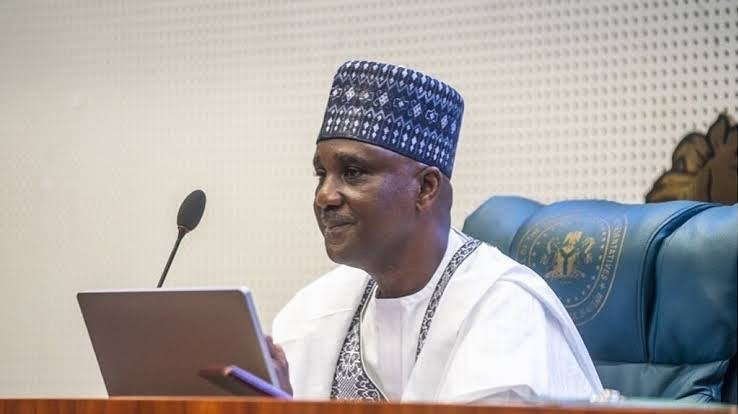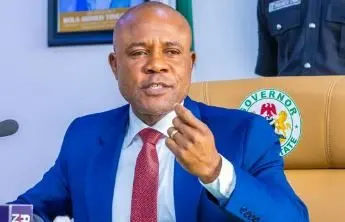By Our Reporters
Abuja — The decision of the Attorney General of the Federation and Minister of Justice, Lateef Fagbemi SAN, to halt statutory allocations to Osun State’s 30 local governments has stirred a storm of legal fireworks and political debate.
Insiders, however, insist the move was not about power play but about the Attorney General’s concern for constitutional order and tenure stability at the grassroots.
Recall that March 26, 2025, Fagbemi wrote to relevant federal agencies directing that disbursements to Osun councils be suspended. His intervention followed the conduct of fresh local government elections in the state in February despite the subsistence of elected officials whose tenure, by convention, was due to expire in October.
Sources told this newspaper that the Attorney General viewed the February polls as “a disruption of tenure continuity” and acted to prevent a precedent that could destabilise local governance nationwide. “The AGF is convinced that democracy is not just about holding elections but also about allowing elected councils to serve out their term. To truncate that tenure is to invite instability and weaken institutions,” one aide said.
Those close to him argue that if the arbitrary decision of a state governor to abridge the tenure of elected officials in Osun goes unchallenged, it will embolden other governors across the federation to adopt the same approach. “That would endanger democracy and development at the grassroots. The AGF felt a duty to act so that what happened in Osun does not become a dangerous template for the erosion of local government autonomy nationwide,” another source explained.
Legal sources note that the Attorney General’s action was guided by long-settled principles. “He was mindful of salus populi suprema lex — the welfare of the people is the supreme law. His duty was to preserve stability until the courts, as final arbiters, pronounced on the matter,” a constitutional lawyer observed.
While critics have framed the directive as executive overreach, allies describe it as a holding action pending judicial clarity. “He was not trying to overrule the courts. He knows only the judiciary can resolve this definitively. He simply pressed pause until the Supreme Court could settle the dispute,” another insider added.
The Attorney General’s stance draws on judicial precedents. In Attorney General of Lagos State v. Dosunmu (1989), the Supreme Court affirmed the duty of the Attorney General to interpret the law and act in the public interest even while awaiting final judicial confirmation. His associates say this is precisely what Fagbemi has done.
But Osun State took a different view, filing a suit before the Supreme Court to compel the release of its funds. The state also initiated actions in other courts, while the Nigeria Union of Local Government Employees (NULGE) joined the fray. In parallel, the Nigerian Bar Association, which had earlier sought dialogue with the Attorney General, intensified public criticism.
“It is curious that the NBA, which has a history of condemning governors for appointing caretaker committees, would ignore the unconstitutional decision of Governor Adeleke to truncate the tenure of elected local government officials, which is the foundation of the crisis,” one aide argued.
Analysts warn that such parallel actions amount to forum shopping and media trial. The Supreme Court has repeatedly frowned on these practices, most notably in Saraki v. Kotoye (1992) and Dingyadi v. INEC (2010), where it described them as abuses of court process. “Once a matter is in court, the principle of lis pendens requires restraint. Parties should not fight the same battle in court and in the press simultaneously,” one senior advocate noted.
Critics of the Attorney General cite Section 162 of the Constitution, which mandates that allocations “shall” be paid to councils. But supporters counter that he acted in the spirit of ubi jus ibi remedium — where there is a right, there must be a remedy. They argue that elected councils have a right to enjoy their full tenure, and that Fagbemi’s temporary directive was aimed at protecting that right.
“Democracy is undermined not by Fagbemi’s interim measure but by elections that cut short subsisting mandates,” a source maintained.
On why the Attorney General has avoided public sparring, an insider explained: “The AGF is aware of the multiplicity of suits filed by Osun directly or through its allies. Being a man of due process, he is not one to engage in media brickbats.” A close associate described him as a “gentleman of the Bar” who believes that justice must ultimately be settled in the courthouse, not in the court of public opinion.
A constitutional scholar put it this way: “This is not about politics. It is about ensuring that tenure is respected and the Constitution upheld. The AGF raised the alarm, but he has left the final word to the courts. That is what makes his intervention measured and principled.” The scholar, however, expressed concern about the multiplicity of suits filed by the Osun Government and its allies, describing them as “a flagrant abuse of court process.”
He welcomed the fact that Osun eventually filed a substantive case at the Supreme Court last week. According to him, the Court will now determine not only the fate of Osun’s allocations but also the delicate balance between executive caution and judicial supremacy.
Whichever way the decision goes, Fagbemi’s move has already highlighted a central constitutional question: how to preserve stability and legitimacy in Nigeria’s local government system.





